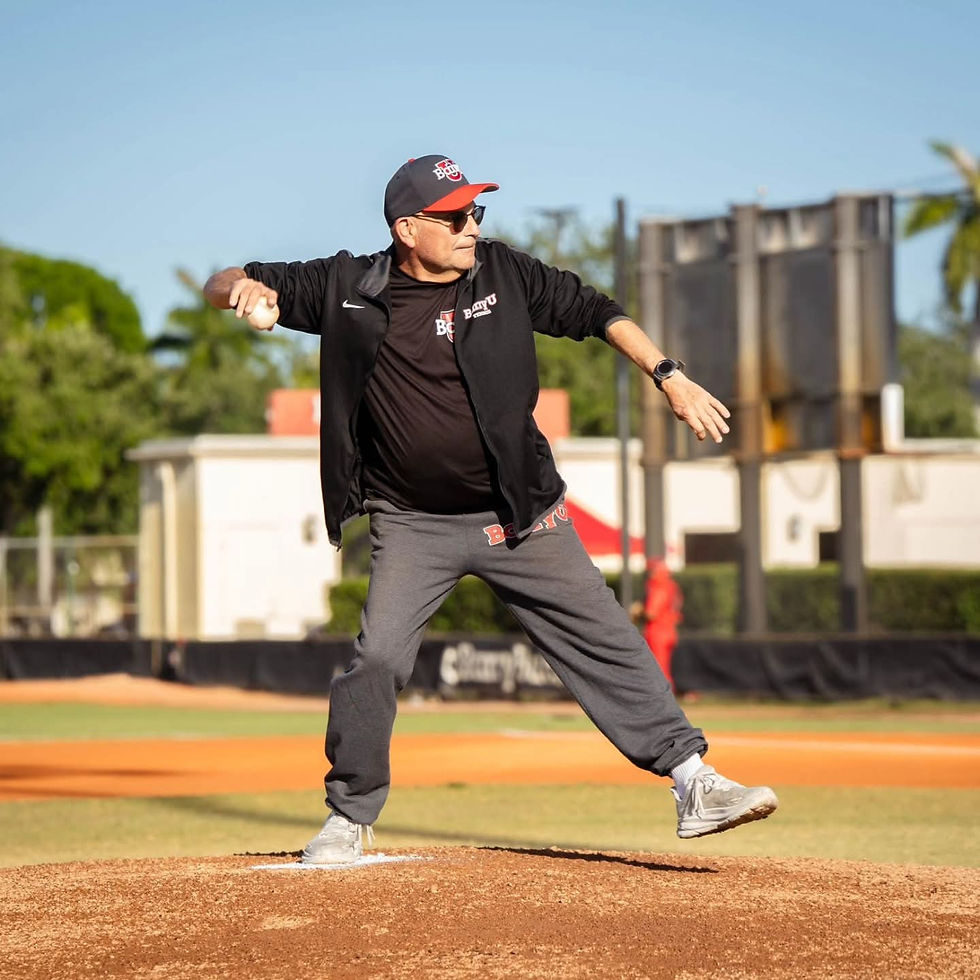INTERNATIONAL STUDENTS 101
- Apr 16, 2024
- 4 min read
By Kean Huy Alado
Studying abroad is a life-altering decision. Doing so induces overwhelming worries over safety, support systems, and opportunities. Many arrive at Barry University wanting to know how to make the most of their time.
“As an incoming freshman international student from Russia to Barry University, my feelings were a mix of excitement and apprehension,” said Evgeny Yudin.
International students Zhasmina Kerimowa a finance senior, Yudin, a sophomore in international business and business management, and Dominique Campbell, a junior nursing major, all entered the country confused about the legal, financial, and academic parts of their new journey.
They wondered about the procedure for an international student to obtain a driver’s license, a social security number, an apartment or residence during their time of study, scholarships, internships, and which companies and organizations offer working visa sponsorships after graduation. Kerimova was beaming about obtaining a credit card and opening a brokerage account for investment and trading.
Fortunately, Frederique Frage, the program manager for the International and Multicultural Program and Barry’s designated school official (DSO) supplied her answers to every international student’s frequently asked questions:
Are international students eligible for financial aid in the U.S.? International students are not eligible for U.S. federal or state financial aid but are eligible for other sources of financial aid and scholarships.
Can I apply for a social security number? Only if the student is approved for on-campus employment or approved for off-campus work, they are eligible for a social security number (SSN).
Can I work off-campus? In order to work off-campus, international students must obtain work authorization from International Student Services (ISS) prior to engaging in any employment. Employment options include any internships or what is referred to as Curricular Practical Training (CPT). CPT is an internship or field experience in the field of study that is required for a class or program completion and must be reported on the I-20. In addition, international students have the option of participating in Optional Practical Training (OPT). OPT is one year of work authorization in their field of study.
Do I have to be enrolled in school full-time? The U.S. Citizenship and Immigration Services (USCIS) requires international students to be enrolled full-time (12 credits if undergraduate, 9 credits if graduate, 6 credits if doctoral) each academic semester, except during the semester the student is graduating, when they only need to enroll for the credits remaining. Earning an "incomplete" does not count toward enrollment.
If I am traveling outside the U.S., what documents do I need to re-enter the U.S.? To re-enter the US after a temporary absence (i.e., an absence of five months or less), international students must have a properly endorsed (signed) Form I-20, a valid passport, and a valid F-1 Student Visa (visa is not required for citizens of Canada).
What happens if I try to enter the U.S. without a valid travel signature? If you arrive at a US port of entry without all the required documents, the customs officer may deny you entry into the US. As an alternative, the officer may issue you an I-515A. This document allows you temporary admission into the U.S. To maintain your nonimmigrant student status, students must submit the required documentation listed on your I-515A to ISS immediately in order for the documents to be reviewed and sent to the Department of Homeland Security (DHS) within 30 days.
What is the procedure to apply for OPT? There are two types of OPT, Pre-Completion and Post-Completion. Pre-Completion OPT must be directly related to the major area of study and international students are eligible to apply for this type of OPT once they have been in their degree program for one year as an active student. Post-Completion OPT is for when international students have completed their degree program and are eligible to apply 90 days before degree completion.
Can I renew my visa in the US? It is not possible to renew an F-1 Student Visa in the US. If an international student plans to travel outside the US with an expired visa, the student will need to apply for a new visa while outside of the US prior to the student’s return.
If I have not finished my academic program and my I-20 will expire, what do I need to do? If you are unable to complete the degree program within the time period indicated on the I-20, the student may request a program extension if the delay is caused by compelling academic or medical reasons, such as change of major or research topic, unexpected research problems, or documented illnesses. Applications for an extension MUST be made prior to the completion date on the I-20. If the delay in completing the degree program is not for one of the reasons listed above, or if the student does not apply for an extension prior to the completion date on the I-20, they will be considered to be out-of-status and must apply for reinstatement.
Am I required to file taxes? International students are required to file tax paperwork in the year following the calendar year for which they were in the US. Any aid that is above tuition and mandatory fees is subject to tax withholding. In addition, any income earned in the US requires a tax filing.
Barry’s DSO, Frederique Frage, is found in the Landon Student Union, suite 108, below the Roussell Dining Hall to supply more detailed and case-specific information should an international student need it.





Comments